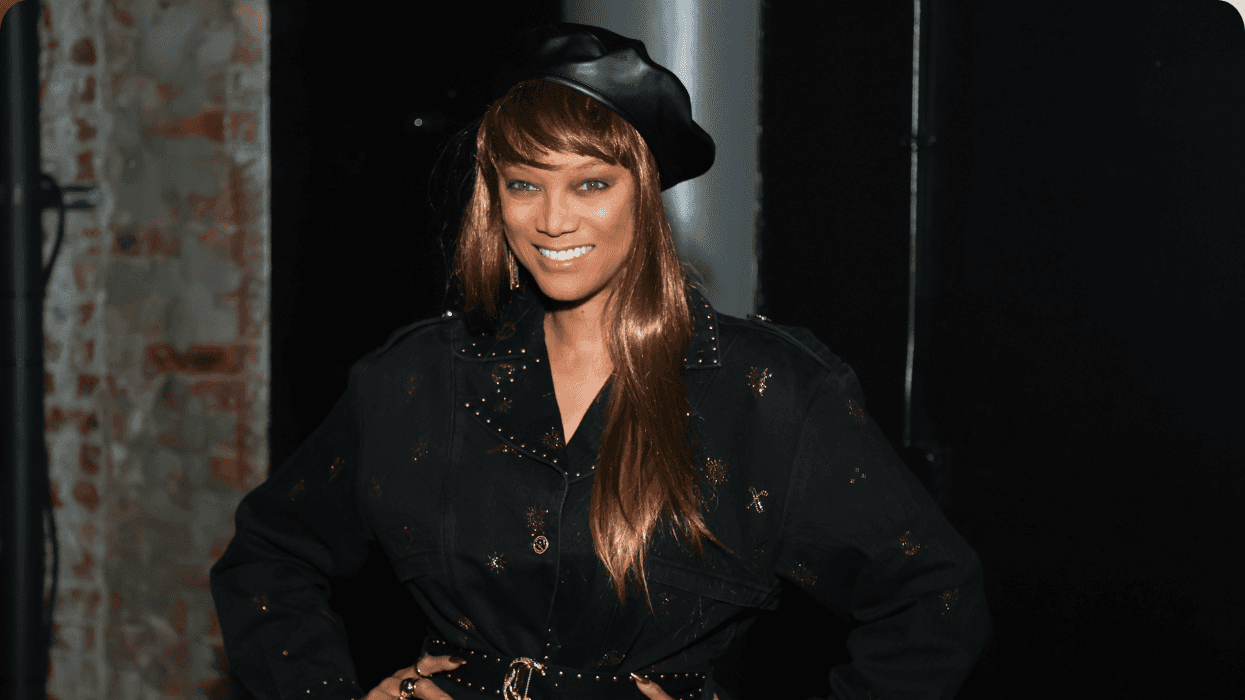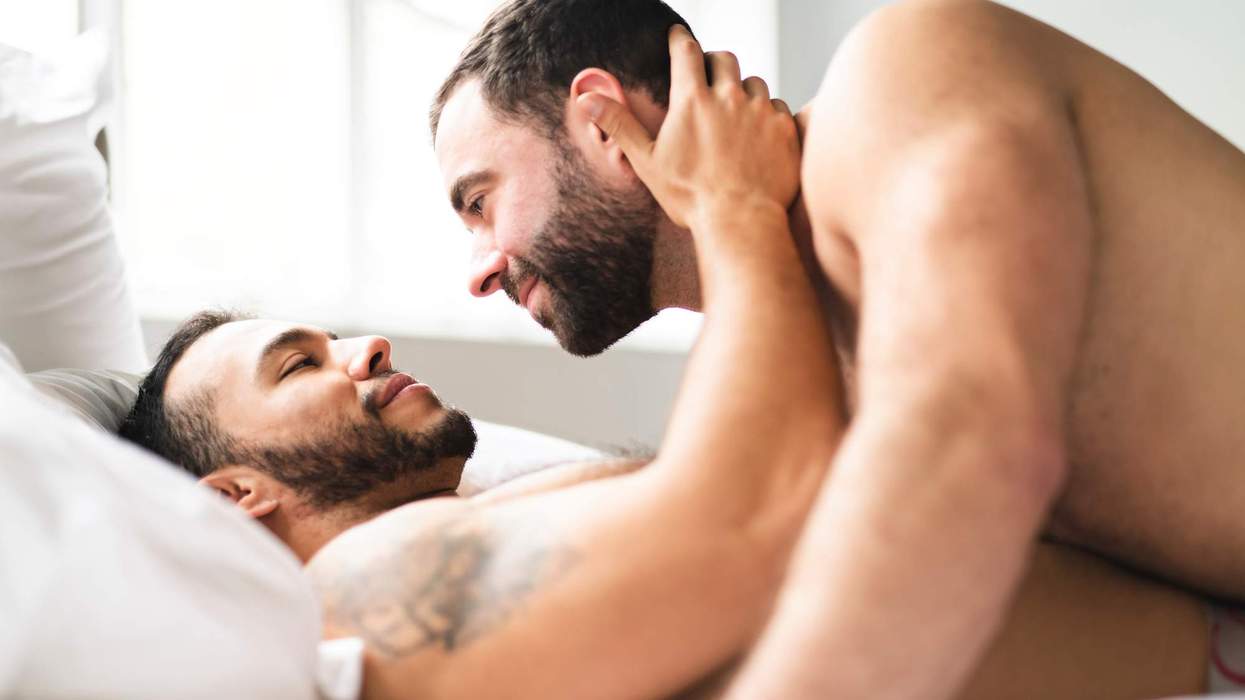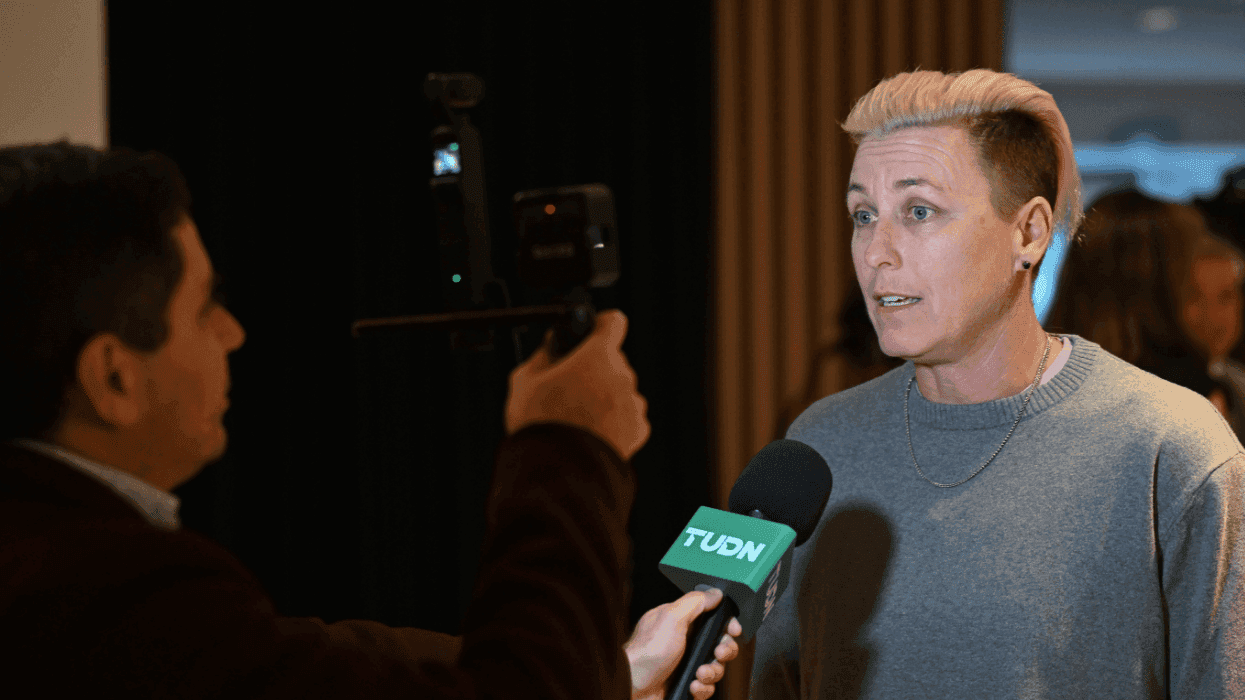There is an important new queer movie in theaters this Friday: The Miseducation of Cameron Post, which won the Grand Jury Prize at Sundance in January. The second feature by out director Desiree Akhavan, Cameron Post follows a young queer woman to a conversion therapy camp sometime in the mid-90's and tracks her complex relationship to her identity. It's a tricky role, and luckily it's played by a legit movie star, Chloe Grace Moretz, who was focused, direct, and polite when I met her the morning after Cameron Post's LA premiere at Outfest to talk about the role, as well as the current state of affairs for LGBT youth. This is a smart girl who knows her shit, and her outrage is every bit as genuine as her subtle, aching performance in the film.
Related | Desiree Akhavan Takes on Gay Conversion Therapy With Her Sundance Winner
Austin Dale: I saw the movie last night at the Ace Hotel.
Chloe Grace Moretz: So it's still fresh!
AD: I actually had a dream about it.
CGM: Yeah, it's a very impactful movie. A quietly impactful movie.
AD: It brought back a lot of memories to a scary time.
CGM: A hundred percent.
AD: My first question is pretty general. When I think about you, the biggest impression that you made for me was in Clouds of Sils Maria.
CGM: Really? Thank you!
AD: That's a wonderful movie. When I watch that, or when I was watching Cameron Post, I'm thinking, like, "She doesn't have to do these movies. She probably turned down a couple big studio movies to do this."
CGM: Yup.
AD: For you, is it a long-term strategy, or do you just kind of go role by role?
CGM: I'd actually taken about a year and a half break from acting before I did this movie. Yeah. I was really unhappy with the studio films that I was doing. I was really unhappy with the content I was putting out, because it felt like I wasn't doing myself justice, that I wasn't doing society justice, that I wasn't putting out content that was progressive, or that hit me in a personal space or lit a fire under me or lit a conversation.
I have two gay brothers in my family, and so of course, being a part of the community, and being vocal and active about it has always been massive for me and my family. So when I read this script, it was the first time I'd read a queer story where I felt like it was an adequate depiction of the intricacies of the interpersonal relationships when you're meeting other gay people for the first time when you're younger. And how awkward and how familiar that is. And the reality of the societal pushback you get when you are choosing to live your truth. And that really made me want to do this movie.
It was made for $900,000. We did it in 23 days. I pretty much paid to be a part of the movie. I got zero back in terms of money for the movie. But in terms of opening my heart and feeling like I was doing something that, for the first time in a long time in my career, made sense. And it felt good, really really good. Emotionally, I was so wealthy in that moment.
So this movie was incredibly important for me and my growth as a young woman, and for the future of the trajectory of my career. It wasn't a strategic choice, but in a sense it was me saying, "I'm taking the reins of my career again, and I'm making this the first step of who I am."
AD: When you were introducing the movie last night at the Ace, I think you mentioned there were 700,000 people...
CGM: Currently affected by conversion therapy. Yeah.
AD: It's a staggering statistic. Did you come across other research that blew your mind?
CGM: A hundred percent! I, along with most of America, thought this was a fairly archaic issue. When we started this movie, we were still in the Obama era, so this was still pre-2016 election. We were still protected under a liberal leader. So it felt pertinent for me to tell this story, because when I first read the script, I Googled "conversion therapy," and of course you go down the rabbit hole. You start to realize this isn't an archaic issue at all. It's incredibly modern. And 77,000 kids in the next five years are going to be subjected to conversion therapy.
The reality is that there's no one religion or one sphere where it's held. It's everywhere. It's incredibly insidious. It's as simple as this: There are websites where you can put in your zip code and it will give you places within a ten mile radius where there are therapists who are willing to put your kids into conversion therapy starting tomorrow. I was shocked. So I wanted to tell this story. And then halfway through filming the movie, Trump became our president.
AD: You were shooting right during the election?
CGM: That 4 Non Blondes scene, where I'm singing on the table, that was the day we found out. We went to bed, and we were like, "Today is going to be the first day of the rest of our lives with our first female president-elect." And then we woke up at five a.m. to the reality. We're tired, we're crying. We cried together. And Desi [Akhavan] was the first person to stand up and say, "Yes, we can cry. But the best thing we can do is get up and go film this movie, because what he can't silence is our art." And that's why that scene feels so organic and silly and bittersweet. But it was so real because we were singing that song to try and shake off the shackles that had just been wrapped around our arms.
It was a shocking realization that Mike Pence, our new Vice President, not only believes in conversion therapy, but he's a complete advocate for it. He helped funnel money from AIDS funding into conversion therapy. I mean, the depravity is shocking! And they're taking strides on the Republican side daily to try to strip laws from states that have overturned it. And so suddenly this movie became societally one of the most important movies that's coming out right now. It needs to be seen.
AD: I think the audience response was amazing last night. You got an applause line when you said, "What part of programming people to hate themselves..."
CGM: "...isn't emotional abuse." Yeah.
AD: I think it was cathartic for people. I was wondering how many people in that audience had gone through conversion therapy.
CGM: More than you think. Everyone I talked to either knew someone who had gone through it, or they had been put through the early stages of it. I was just blown away by the realizations. We did a lot of research with survivors, in particular Mathew Shurka who works for GLAAD, and he travels around trying to different states to work on overturning conversion therapy. The cannibal scene in the movie, that's a scene from his mouth about what he was told: that you're gay because you want to consume the attributes that you see in someone else. And Desiree and I were so blown away by this story we were telling us! There were other stories he was telling us that would have seemed so non-linear and shocking to reality that we couldn't even put it in there! It's a shocking, shocking process.
And what's important about this movie, at least for me, is that it's told by queer people. Our director, Desi, is bisexual. The actors in the movie are on the spectrum. There is no white male straight gaze in the film. It is for the community, by the community.
AD: I actually have a question about the gaze! I don't know if you want to talk about the sex scenes in this movie.
CGM: Yes!
AD: At one point, there's a cut to your point of view in the middle of a sex scene, and you're staring at the ceiling, totally disengaged from the sex you're having with a boy. And it went off in my head, "I'm really with her in this moment."
CGM: I've been doing sex scenes in movies since I was sixteen. A loooooong time. And I'd never been able to do one with a woman directing me. And for the first time, it was really beautiful, because not only was our director female, but our cinematographer was female. And I think you can feel that in the scenes! There's an intimacy and a sweetness to them. They're not voyeuristic. It's not T-and-A. It's not about showing someone having an orgasm. It's about the beautiful side of when you are a young gay person, having your first sexual moments are incredibly enlightening: You're realizing, "Oh, I'm not crazy, this is a real emotion that I'm feeling." And we wanted to depict that. We wanted to depict that the relationship between her and Coley was real and fully requited. The sex scenes were something Desi handled really impeccably. It's because it's through the female gaze.





























